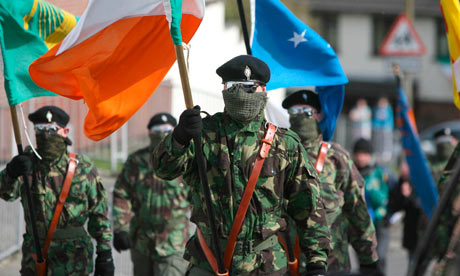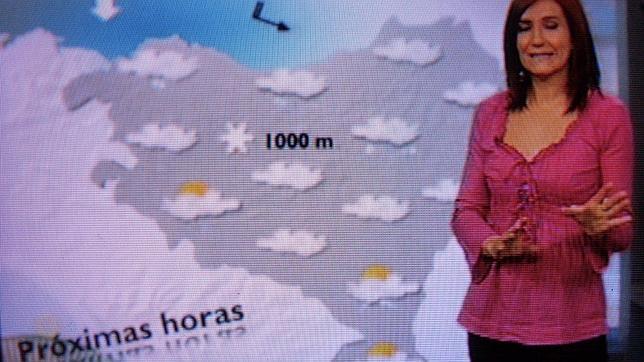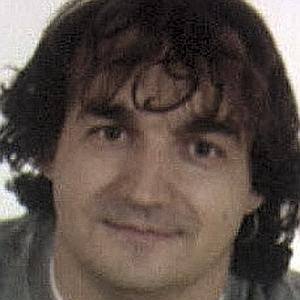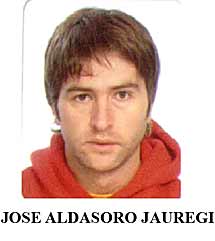
There are currently 603 male and female prisoners recognised as Basque
political prisoners by Etxerat (the word means “Homeward”, the
organisation of prisoners’ relatives and friends (there are some other
political prisoners who are not part of the collective). This would be
an amazing number of political prisoners for any society but for a
nation of less than three million people, it is astounding. It speaks of
two things: the level of repression and the level of resistance.
This high number of prisoners ensures that there is hardly a Basque
citizen who does not have personal knowledge of a political prisoner,
whether the person be in a relationship with the prisoner, a family
member, a neighbour, a workmate, a former co-student, close friend ....
That, as well no doubt as the high politicisation of the Basque Country,
is what ensures the huge demonstrations every January in Bilbao (over
110,000 this year).
In February, there were the following prisoners:
• 439 in 45 Spanish state jails
• 134 in French state jails
• 4 in jail in England
• one in the Six Counties, Ireland
• one in Scotland (now in French jail)
• one in Portugal
• one in Brazil
• one under house arrest in Rome
• 11 prisoners on parole due to serious or incurable illness (one, on parole confined to his house, died on March 14th)
• one in internal exile in France
The Basque prisoners are dispersed throughout 83 prisons. Of the 603 prisoners, 582 are in jails outside the Basque Country.
• 83 are between 1,000 and 1,100 km from the Basque Country
• 161 between 800 and 1,000km from the BC
• 136 between 600 and 800 km from the BC
• 88 are at 400 or more (but less than 600) from the BC
• One person in internal exile more than 900 km from the BC
• 8 prisoners in other countries
EXTENSION OF SENTENCES FOR BASQUE PRISONERS – THE “PAROT DOCTRINE”
In July 2012, the European Court of Human Rights in Strassbourg upheld
the complaint of Basque political prisoner Ines del Rio that her human
rights had been abused and instructed the Spanish state to set her free,
to pay the expenses of the case and to pay her €30,000 in personal
damages.
According to Spanish law, having been jailed in 1989, Ines del Rio was
eligible for parole in 2008. However, in 2006, after a right-wing public
opinion campaign, the Spanish Supreme Court decreed a change in the way
sentences were to be calculated and in del Rio’s case, decided that she
should be held indefinitely. The Strassbourg court held that no
prisoner should have an indefinite sentence and furthermore that
legislation could not be applied retroactively to the detriment of a
prisoner, i.e. to a case where the alleged crime had occurred prior to
the change in the law – a well-known principle of jurisprudence.
The new decree was nicknamed the “Parot Doctrine” as it had been first
applied to ETA prisoner Henri Parot, jailed in 1987. Ninety-three
prisoners have now had their sentences extended by the change in the
Spanish penitentiary law of 2006; of these 22 have served the extra time
and are now free but 71 are still in jail. Ramon Aldosoro was jailed in
1997 and given a release date for 27th October 2017; however, under the
application of the decree, he will not be released until 25th March
2027. Raul Alonso was due for release in 2015; under the application of
the new law he will not be released until 2021. Iňaki Gonzalo Casal was
jailed in 1994 and was due for release in May this year but has been
told that under the new law he will have his jail time extended – but
they have yet to tell him until what date.
Within less than an hour of being informed of the Strassbourg verdict in
the case of Ines del Rio, the Spanish Interior Minister Jorge Fernandez
announced that the Spanish state would appeal the decision to the
Supreme Tribunal of the Court and that meanwhile, del Rio would remain
in jail. According to the legal advice of Etxerat, the organisation of
friends and relatives of the Basque prisoners, the Supreme Tribunal will
consist of 17 judges (including the President of the Court and those
who ruled in her favour in July) and will examine the case again from
the beginning, accepting any new submissions made by the Spanish state
or by del Rio’s legal team.
DUBLIN BASQUE SOLIDARITY COMMITTEE TO HOLD PRISONER SOLIDARITY PICKET
It is to support the cases of Ines del Rio and of the others subjected
to the new decree and also in solidarity with all Basque political
prisoners that the Dublin Irish Basque Solidarity Committee has called a
picket for 2pm this coming Saturday 16th in front of the European Union
Parliament’s building in Dawson Street.
The DIBSC has been active in Dublin since 2006 and has just concluded
its contribution to the annual International Solidarity with the Basque
Country Week, putting a Basque band on in Sweeney’s pub in Dame Street
and holding two public talks elsewhere, one on the crimes of Franquism
in the Basque Country and another on the campaign for the Basque
language there.
“What party affiliation does the DIBSC have and which group or movement
does it support in the Basque Country?” I asked a spokesperson for the
Basque Solidarity Committee in Dublin. She pointed me towards their
constitution, which declares it to be a broad organisation under the
control of no party or organisation, whether in Ireland or in the Basque
Country. “Of course, we have a basic political position,” she said,
“which is freedom for the Basque country. By that, we mean the freedom
to decide, without repression or menace, whether to continue their
current situation, to join a federation or to become an independent
nation. It would seem that the majority wish in Basque society is for
independence but the choice is theirs. We have in the course of our work
developed links with a number of organisations in the Basque Country
but we are autonomous.”
The spokesperson continued: “Our Committee has always supported the
Basque political prisoners and has organised pickets in Dublin a number
of times over the years. And just two months ago,” she continued, “we
raised money by a social event in Dublin and sent it to the Etxerat
organisation to help the relatives. The Spanish and French governments
want to crush the spirit of the prisoners and are also using them as
hostages for the Basque liberation movement. The existence of so many
Basque political prisoners is a symptom of a deep political problem.
Repression will not solve it – that was tried by the old Spanish
monarchy and by Franco’s dictatorship and by every Spanish government
since. The treatment of the political prisoners contravenes basic human
and political rights and should be considered an abomination in Europe.”
The Abertzale Left (formerly represented by the political party
Batasuna, banned in the Spanish state but not in the French) is now
represented by a new party, Sortu, which was permitted by the Spanish
state only after its ban was overturned by an appeal to the Spanish
Constitutional Court. The party has declared its wish to settle the
political problem through a political process and has called on the
Spanish and French states to engage in that process. This call has been
ignored by the French state, while the Spanish continue to engage in
repression.
In most such conflicts elsewhere, the release of political prisoners has
formed part of the settlement. Much of the Spanish state and society
however is run by the children and grandchildren of Franco’s generals,
politicians, businessmen, judges, police and army chiefs, as was pointed
out by the speaker from the Basque organisation Ahaztuak (“The
Forgotten”) in Dublin less than two weeks ago. Even the social democrats
of the PSOE, who were repressed under Franco, were deeply infected upon
coming to power: their Minister of the Interior was jailed for his part
in running the anti-Basque assassination squads of GAL in the 1980s and
it was rumoured that the chain of command went right up to Felipe
Gonzalez, head of the party at the time and Prime Minister from 1982 to
1996, although he was never charged.
The fascist hierarchy were never even partly cleaned out in the Spanish
state as they were elsewhere in Europe after the 2nd World War and every
now and again Spanish Army generals make not-so-veiled threats of a
repeat of the coup that brought Franco to power. Meanwhile the struggle
for self-determination goes on in Catalunya and in the Basque Country
with majority support among their populations and, in the Basque
Country, the suffering of the relatives of the prisoners continues,
while most of the prisoners suffer alone or in small groups dispersed
throughout the French and Spanish states.
MEDICAL NEGLECT AND REFUSAL TO RELEASE SICK PRISONERS
Thirteen seriously-ill prisoners are listed by Etxerat as being held in
prison and who should be released, not just according to humanitarian
principle but by Spanish law which holds that seriously and
terminally-ill prisoners should be released on parole to receive medical
care and the care of their families. The diagnoses of these thirteen
range from cancer to schizophrenia.
Iosu Uribetxeberria is one of a number who have been released on parole
but only after he went on hunger strike five months after he had been
diagnosed with terminal cancer. He was first taken to hospital as an
emergency case, where he was put in a locked ward with bars on the
window and police on 24-hour guard, ocassionally insulting or
threatening him and his visitors. There he went on hunger strike and the
support campaign for him outside gathered force (there was a solidarity
picket in Dublin too, organised by the DIBSC). When the Director of
prisons ordered his release on parole, the State Prosecutor objected and
appealed the decision but finally Iosu was released to his family and
to medical care of his choosing. He is not permitted to leave his home
area, however.
In Villenas prison, the female prisoners await the result of a formal
complaint on being refused permission to be visited and examined by a
gynaecologist of their choosing.
As this article was nearing conclusion, the tragic death occurred of
Angel Figueroa in his native Algorta, Getxo (not far from Bilbao). Angel
had been jailed in 1994 and his epilepsy, of which previously he had
suffered only extremely mild episodes, quickly worsened and he began to
collapse without warning, losing consciousness. He remained in jail and
was taken to hospital to receive emergency treatment in 2005 after being
found unconscious on the floor. In 2006 he underwent an operation but
during the following year suffered 20 serious attacks, during two of
which he suffered injury but was only finally released on parole in
2007. The week before his release he was transferred to yet another
prison which brought on another attack. Finally on parole, he was not
permitted to leave his house, where he was found dead on 14th March – he
was in his early fifties.
In an interview which his mother, Mari Carmen Fernandez, gave a
newspaper in 1997, when she was campaiging for him to be granted parole,
she said that had he not been a political prisoner, he would long
previously have been released. “There are laws”, she said, “but there is
no justice.” She compared his case with that of the General Rodriquez
Galindo of the Guardia Civil, who was convicted of the kidnapping and
murder of Basque activists Joxean Lasa and Joxi Zabala as part of the
state-sponsored terrorism of GAL, who served barely four years before
release, alleging health problems.
Their family also experienced one of the hazards faced by relatives
travelling to visit prisoners: in 1997 Mari Carmen’s mother, travelling
with her daughter, Angel’s grandmother, while on their way to visit
their son and grandson, died as a result of a traffic accident impact on
the vehicle in which they were travelling.
PAROLE
As a matter of course, social prisoners in the Spanish and French jails
are eligible for parole after they have completed a certain number of
years. As a matter of course, Basque political prisoners are refused
parole. However, in January, the French Tribunal with responsibility in
that area granted parole to Basque political prisoner Argi Perurena (one
of two spokespersons for the prisoners in French jails), who had
already served 13 years. She had to agree to wear an electronic
bracelet, have a job and maintain a fixed abode within the French state.
However she remains in jail because the French state Prosecutor
appealed the Tribunal’s decision. A verdict is expected this month.
SOLITARY CONFINEMENT AND ISOLATION
Solitary confinement is a measure which is supposed to be used only in
certain cases and for limited time periods but, according to Etxerat, it
is routinely used to punish Basque political prisoners for being what
they are and for not renouncing their convictions. The dispersal of
prisoners has facilitated isolation from their comrades but as the
numbers grew it became difficult, especially in the Spanish state, to
ensure that no prison held more than one Basque political prisoner.
However, even when there are Basque prisoners in the same jail, they are
frequently placed in different wings or blocks so that they may never
see one another.
In addition, in February there were six Basque prisoners in long-term
solitary confinement, two in the Spanish state and four in the French.
In the latter, one of the prisoners, Ibai Sueskun, has been maintaining a
weekly one-day hunger strike in protest at his treatment in Tarascon
prison.
HARRASSMENT OF PRISONERS
There are so many ways in which those who control the prisons can
harrass prisoners and most of those measures are employed against Basque
political prisoners, according to Etxerat.
Two prisoners in a relationship, Marta Igarritz and Karmelo Lauzirika,
who are in different Spanish prisons, have had permission to communicate
with each other withdrawn by the authorities. In Seville II prison,
since December, a new regulation prohibits prisoners from receiving more
than two publications in the monthly parcels, whether they be books,
newspapers or magazines. In Algericas prison, after a public complaint
about the prison’s ban on Christmas cards in Euskera (Basque language),
the prisoners have been informed that letters written in Spanish will
also be delayed by fourteen days.
In a number of prisons, the five-minute phone calls have been cut short before the alloted time.
Etxerat alleges that violent and unnecessary cell searches (allegedly
for contraband) are frequently carried out against Basque and in
February named the prisons of Huelva, Cordoba, Dueňas and Foncalent. In
Puerto III prison, Aitor Cotano was stripped and searched after a
face-to-face visit. A prison officer also ordered him to do pushups
although he is on crutches and, when he refused, he was taken to
solitary confinement. That afternoon when his partner came to visit him,
she was told, without any explanation whatsoever, that she could not
visit him. After much effort and demands to see the person in charge,
she was told that Aitor had not obeyed instructions and was therefore in
solitary. According to www.distance-calculator.co.uk/world-distances,
the distance from the Basque Country (taking the city of Donosti/San
Sebastian as a middle point), is 857 miles or 1,378 km as the crow flies
but going by car at an average speed of 96 Kmh would take over 14
hours. And of course the same back again – and all for an aborted visit.
PUNISHMENT AND HARRASSMENT OF RELATIVES OF BASQUE POLITICAL PRISONERS
STRESS AND DANGER
The dispersal of prisoners brings huge burdens on friends, relatives and
partners who are, even by Spanish and French law, guilty of no crime
whatsoever. Every weekend there is a mini exodus from the Basque Country
of prisoners’ relatives southward to Spanish jails and northwards to
French ones. Each visitor requires approval to be on a visiting list and
each visit prior permission for a specific date for nominated persons.
Each visit also entails arrangements and financing in terms of travel,
often overnight accommodation, food, taking turns driving if going by
car or van, arrangements for childcare, time off work for some and so
on.
Considering the long distances often travelled and the stresses
involved, it is hardly surprising that prisoners’ visitors suffer
traffic accidents from time and occasionally these are fatal. Three
friends of a Basque prisoner were lucky to walk away relatively unhurt
from a crash due to ice and hailstones as they travelled to Burgos jail
on February 1st. Of course, they did not make their visit and had to
return home by taxi, due to the damage to their car.
CANCELLATION OF VISITS
One can try to imagine the hurt to putative visitors when they are
prevented from visiting the prisoner whom they have travelled distances
to see and for whom they have obtained permission and a date. According
to Etxerat this happens all too frequently and, apart from the case of
Aitor whose visit was terminated for refusing to do pushups (see
earlier), they quoted three such cases in February. In Muret Seysses
French prison, visitors of Juan Carlos Estevez were told that he was no
longer in the prison. They had to return home (the prison is 450 km from
the Basque Country) and later learned that he had been there all along.
This was not the case with the relatives of Julen Mujika, who travelled
900 km to see him in the French jail of Villefranche-sur-Saone. They
were told he wasn’t there any longer – which was true, as he’d been
transferred to Muret Seysses without his scheduled visitors being
informed in advance.
Aingeru Cardaňo was transferred from Soto del Real prison in the Spanish
state to another jail, Ocaňa; the transfer took three days during which
he was unable to communicate with his family. The day that he arrived
in Ocaňa, he had an open visit (face-to-face) scheduled in his previous
jail of Soto. His visitors travelled 500 km there in vain and the same
distance back again.
In a similar move but this time from the Soto del Real jail to Mansilla,
Leon, Olga Comes also lost a visit and her relatives made the round
trip of approximately 900 km in vain.
HARRASSMENT OF RELATIVES
If the experience of relatives of Irish political prisoners convicted of
acts of “terrorism” and jailed in Britain between the 1970s and 1990s
should serve as an indication, relatives of Basque political prisoners
on their travels to jails must endure some hostility from Spaniards.
Given the high level of fascist survival within the Spanish state, their
reception is likely to be worse than that endured by Irish relatives
visiting prisoners in Britain.
But state forces take a hand too, according to Etxerat. In Villena
prison, relatives were subjected to personal searches, including
children; women were obliged to remove their brasieres and also had
their breasts probed.
In February, during the early hours of a morning in the third weekend of
the month, Spanish police burst into the hotel accommodation occupied
by three relatives, one of them 11 years old, who had travelled a long
distance to visit a female prisoner. Five of the police were uniformed
Policía Nacional and five were in plain-clothes and demanded to check
the identities of the hotel room occupants.
Earlier, on the 3rd of February, the Ertzaintza (police of the Basque
Autonomous Government) detained the van of relatives returning from
Foncalet prison and held them up for an hour.
On the 15th of the same month, at an apparently routine checkpoint
operated by the Guardia Civil (another Spanish state-wide police force
but militarised), relatives were detained for hours when the police
learned that they were on their way to meet a relatives’ bus that was
going to prisons in Andalucia (the far south of the Spanish state).
According to the relatives, not a single other vehicle was stopped by
the police during the entire time that they were held up there.
In conclusion, it does seem incredible sometimes that this systematic,
widspread and heavy abuse of human and civil rights by two large EU
member states is taking place not only in Europe but at a distance of a
mere couple of hours’ flight from Dublin.






























